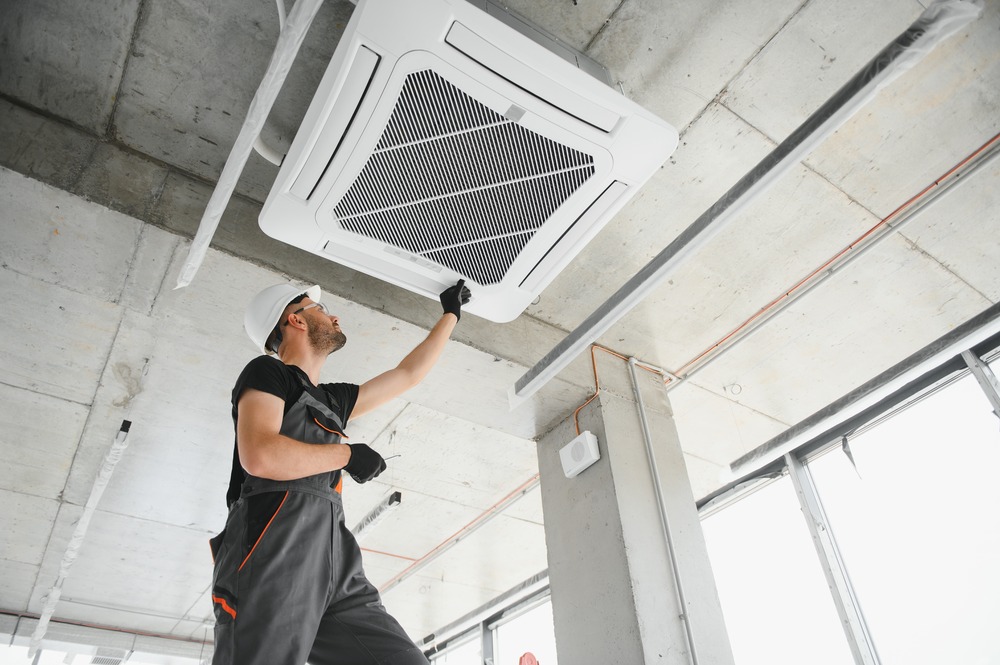
Choosing the right heating power of an air conditioner is not only a matter of ensuring thermal comfort in the room, but also energy efficiency and durability of the device itself. Therefore, it is worth considering what affects the heating power of an air conditioner and what factors should be taken into account when determining it. Properly selected equipment will provide us with an optimal temperature even on colder days, with energy efficiency and durability for years. Proper heating of a living or office space is especially important during transitional periods, such as early autumn and spring, when the outside temperature can be unpredictable. Improperly selected heating power can result in insufficient heating or excessive energy consumption, which affects maintenance costs. With good planning, we can create a space that is comfortable and energy efficient.
Climatic conditions and room specifics
The first factor that affects the heating power of an air conditioner is the local climatic conditions and the specifics of the room in which the unit will be installed. In regions with harsh winters and large fluctuations in outside temperature, air conditioners with higher heating power should be selected. This is especially important if the unit is to serve as the main source of heat in the room. The more extreme the conditions, the more the air conditioner must cope with wall cooling and heat loss due to the difference in internal and external temperatures. In addition, an air conditioner with a higher output will perform better in large, open spaces that are more prone to heat loss. Another consideration is the size and purpose of the room. Larger rooms require more heating power to heat them efficiently. The height of the ceiling is also worth taking into account when calculating. Rooms with high ceilings require a greater flow of warm air, which implies a higher power of the air conditioner. Small, enclosed rooms, on the other hand, need less power to maintain an optimal temperature. It’s also worth considering whether the room is insulated and whether it has large windows that can let the cold from outside through. Glazed spaces often require higher-powered air conditioners to effectively offset heat loss. Low-power air conditioners in such rooms may be insufficient, reducing comfort and heating efficiency.

Type of air conditioner and its efficiency
The type of unit and its efficiency also play a major role in the choice of heating power. There are split and multisplit air conditioners, as well as portable air conditioners. Wall-mounted split models are more efficient at heating a single room, while multisplits allow you to serve several rooms at once, which may require higher wattage. Each air conditioner is characterized by its COP, which indicates how much heat is generated from a unit of electricity. The higher the coefficient, the more efficient the air conditioner is, allowing it to use less energy while maintaining optimal heating output. Models with a high COP can also operate efficiently at lower outdoor temperatures, which is important for winter heating. High-efficiency air conditioners are especially recommended for rooms that require intensive heating, for example, in office buildings or warehouses. It is also worth noting the additional features of the device, such as the inverter system, which allows you to smoothly adjust the power of the device to the heat demand. Air conditioners with inverter technology tend to be more economical, as they adjust their operation to current conditions, eliminating sudden drops and increases in power.
Such a mechanism of operation increases not only the comfort of users, but also the life of the device itself, which translates into lower operating costs. Thanks to the fact that the inverter system reduces energy consumption, it is possible to maintain a stable temperature in the room without overheating it. The choice of an air conditioner of the right type and technology, matched to the specifics of the heated room, has a huge impact on the quality of heating.

Building energy demand and thermal insulation
One of the most important factors that determines the required heating power of an air conditioner is the energy demand of the building, which depends mainly on the quality of thermal insulation. New buildings that meet insulation and energy efficiency standards can usually use air conditioners with lower wattage, as heat loss is minimal. In older buildings, especially if they have not been retrofitted, more energy is needed to keep them warm. Thick walls and the use of insulation materials with a low heat transfer coefficient are important if you want to reduce heat loss. For buildings without adequate insulation, a high-powered air conditioner may be necessary to provide adequate thermal comfort. Buildings with adequate insulation allow the use of smaller heating units, which will be efficient while using less energy. A well-insulated building is less likely to lose heat through the walls and roof, which translates into lower heating power requirements for the air conditioner. The insulation of the roof and windows can further help minimize heat loss, which increases energy savings over the long term. It is also worth considering the energy efficiency standards of buildings, as those with high energy efficiency allow for long-term savings, both financially and environmentally. An additional factor is also the presence or absence of mechanical ventilation with heat recovery, which allows a significant reduction in heat loss, positively affecting the demand for heating power. Such ventilation allows air to be exchanged without heat loss, which increases the efficiency of heating by the air conditioner and translates into lower energy bills.
- Is it worth buying an air conditioner in winter — when it is cheapest? - 23 October 2025
- Ventilation in workshops and garages — odors under control - 23 October 2025
- The best air conditioners with heating function – ranking of all-season devices - 30 September 2025



